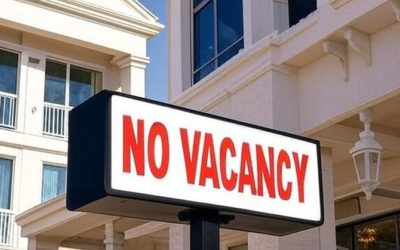A guide to avoiding scam firms, as well those who are just not capable of delivering the results you need.
A dirty business?
It is no secret that the timeshare business has been a serious magnet for nefarious characters during the past several decades. It has presented boundless opportunities to earn easy money in an environment tailor-made for sales: Holiday paradises and luxury apartments are irresistible for people enjoying the endorphins of a family break. It is well established psychology that people in a great mood are more prone to saying yes (it’s why you only ask your boss for a raise when she/he seems happy).

Bad actors flocked to get involved in timeshare, and pushed the boundaries further and further. They sold apartments that would never be built. They lied about amenities that would never be available. They promised buy-back schemes that would never materialise, and reasonable limits to maintenance fee increases.
The business was used to launder the proceeds of crime on an unprecedented scale and by the year 1999, the authorities had focussed significant resources on reigning in the illegal activity, arresting many key criminals.
Laws were also enacted to protect vulnerable consumers from high pressure sales.
Bad actors react
The new edicts forbade companies from taking deposits during the cancellation period, which is currently 14 days in Europe. These two weeks allow a prospect to return home and assess their finances/the relative importance of a huge timeshare expenditure in the cold light of day.

Timeshare companies knew that without being able to commit their targets by taking deposit payments during their ‘holiday euphoria’ they would struggle to make any sales at all.
So what did they do?
They ignored the law completely, and continued taking as much money as they could on the day of the presentation. They knew that the infamous Spanish bureaucracy would work in their favour. Anyone trying to sue them would be constricted by the red tape that pervades not only the Spanish legal system, but every aspect of Iberian society. With lawyers delaying matters still further, even the most determined British timeshare victim would run out of time, money and patience after endless rescheduled hearings and filibustering appeals.
Claims firms. Good and bad
Along came claims firms.
Where individuals might capitulate to delay tactics, claims firms never would. They would rebuff every time-wasting appeal, attend every delayed/rescheduled hearing and stay the course until the inevitable victory. The watershed moment was Tove Grimsbo’s precedent-setting victory over ANFI in 2016. The floodgates were opened to potentially billions in timeshare claims for decades of lawless behaviour at the expense of their customers.

The success of claims firms on behalf of their clients has been so prolific that the biggest names of European timeshare are closing down, with many filing for various stages of bankruptcy, administration or liquidation.
With all of this honest business to be had from bringing timeshare crooks to justice, the reader may wonder why firms would bother scamming people.
- First, to sell someone a service and then not provide that service means all the money is profit because there are no outgoing costs
- Second, and perhaps more to the point, many of the people running the scam firms are the very same crooks who can no longer earn their living in the timeshare industry.
This is a group of people used to lying and cheating for a living, and they have an in depth knowledge of the business. They can set up a scam claims/relinquishment firm and sound pretty much as convincing as the genuine article.
So how do I tell the difference?
Legal fees are not cheap, and no genuine firm can afford to tie up that much working capital on their clients’ behalf while waiting for the award. With thousands of clients, that would equate to millions of pounds.
The fees have to be paid up front, which provides cover for the scam firms who want to take that cash and run.
With so much money at stake, it is imperative to make the right choice when retaining a claims firm to act on your behalf.
As with most internet-age scammers, the clues are there if you know what to look for
- Choose a company who has been in business for a long time. Scam firms can not stay in business more than a few weeks/months. Their online reputation quickly deteriorates to the point where nobody trusts them. They change their name, form new companies and continue doing their dirty business. Any company who incorporated a short time ago should be treated with extra caution
- Excellent online reviews. Check what other customers have to say about the company you are interested in on sites like Google Reviews and TrustPilot. Of course they should have a high percentage of 4 and 5 star reviews, but check the bad feedback too. Every company makes mistakes. How do they react when these errors are pointed out? Are they defensive and in denial? Or are they respectful and willing to fix the problem?
- Do they post video testimonials? Videos of actual clients detailing their personal experience with the company in question have the potential to give you more information. You are better positioned to assess people’s credibility when you can observe them talking about their experience. These videos should be audited by a trustworthy external authority.
- How is their general online presence? Look for a company who has an overwhelmingly positive internet profile. Ideally, multiple sources should be in agreement that this company is trustworthy and capable. If there is the occasional out-of-place negative article, was it written by competitors?
- Do they have physical offices that you can visit in person? Many scam firms have a ‘virtual address’ in a building that is home to thousands of companies. Credible companies have real, physical offices housing their workforce. Genuine offices are accessible to their clients either in person or via Zoom calls
- Do they have a strong, referenceable track record of success? Look for a company who publish their victories in a manner that can be checked by prospective clients
- What do the media say about them? Are there positive reports about the company from high quality media outlets who are likely to fact check thoroughly?
- What is the quality of their website build and marketing material? Scam firms who do not intend to be around long often skimp on the quality of their website and promotional output. Look for poor design, spelling and grammar mistakes, or any other lack of attention to detail.
- Do they allow payment by credit card? Fraudulent companies want you to pay by bank transfer. Credit card payments offer protection from fraud, bank transfers don’t. If they insist you pay by bank transfer, you have to ask yourself why? Is it because they can’t afford the card fees, because they can’t persuade a bank to grant them POS payment facilities, or because they don’t want you to have the opportunity to get your money back if you feel cheated?
- Do they work together with reputable legal partners? For a claims firm to be able to deliver the results they promise, they need a close working relationship with legal partners in the UK and also Spain. The majority of claims happen against Spanish resorts and Spanish lawyers are essential to navigate the legal system. For various reasons, SRA registered UK solicitors are vital too.
More advice?
There is an excellent website called Timeshare Trust UK that provides advice and resources for doing your own research into claims firms. There also various independent consumer associations who will advise you for free.
To discuss timeshare problems with an expert at the Timeshare Advice Centre, get in touch with our team and request a free consultation.


